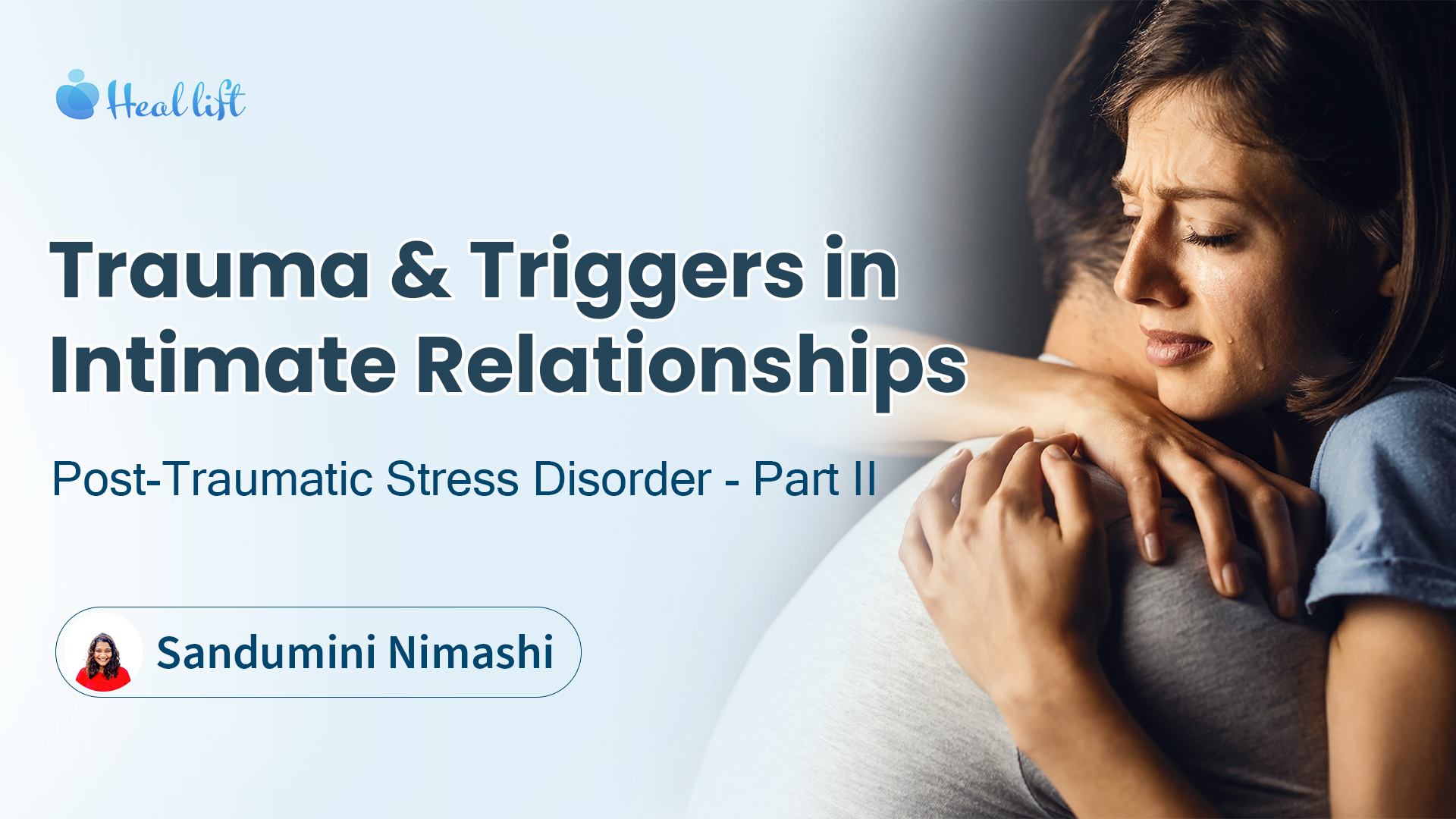Dewmini Matharage - 27 Apr 2024
Does Power Dressing Really Work?
Can the clothes we wear truly impact our chances of success in the workplace and beyond?

Heal Lift

Post-Traumatic stress disorder (PTSD) emerges as a complex aftermath of intense or life-threatening trauma. This trauma spans a spectrum of distressing experiences, including physical or emotional abuse, neglect, loss, or witnessing harrowing events. These encounters imprint enduring marks on an individual's psyche, wielding influence over their thoughts, emotions, and behaviors. Not only does trauma shape self-perception and interpersonal dynamics, but it also molds the capacity to trust, foster attachments, and regulate emotions. The American Psychological Association underscores the enduring repercussions of trauma on relationship functioning, highlighting the potential for strained connections within the intimate sphere.
In this article, we delve into the effects of trauma and triggers on intimate relationships, dissecting how carrying unresolved trauma into such bonds profoundly alters the dynamics between partners. While the impact of trauma may vary from person to person, common effects include alterations in thought processes, breakdowns in communication, emotional dysregulation, challenges in sexual intimacy, avoidance behaviors, and repetitive patterns. We explore each of these effects separately, providing examples of how they detrimentally affect intimate relationships.
Change the thought processes
A traumatic event has the power to reshape your perceptions of yourself, others, and the world at large. Previously, you might have held the belief that people are generally trustworthy. However, if you've endured harm in a traumatic experience, trust can become a fragile concept. You may find yourself grappling with trust issues, adopting a mindset that questions, "I can't trust anyone or allow them to get close to me." Consequently, will affect the way you relate to others, including your partner, leading to heightened vigilance, suspicion, or fear of vulnerability.
Moreover, these shifts in thinking can profoundly impact attachment dynamics within intimate relationships. Individuals who have experienced betrayal or abandonment in the past may struggle to establish secure attachments with their partners. The fear of history repeating itself looms large, leading to patterns of distancing, clinginess, or ambivalence. Such behaviors result in inconsistent or unpredictable actions towards their partner, further complicating the relationship dynamic.
Communication Breakdowns
Trauma often creates hurdles for partners in effectively expressing their needs, emotions, and boundaries. Many individuals find it challenging to broach sensitive topics, opting instead for maladaptive coping mechanisms like avoidance or aggression when faced with relationship issues. Consequently, this breakdown in communication fosters misunderstandings, breeds resentment, and fuels escalating conflict within the relationship.
Emotional Dysregulation
Trauma activates the fear center of our brains, propelling us into a fight/flight/freeze response aimed at survival. However, even after the traumatic incident has passed, our brains may remain in this hyperalert state. In the intimate realm, triggers stemming from trauma can disrupt the harmony between partners, overwhelming both and straining their emotional connection. Individuals may find themselves reacting to perceived threats, regardless of their actual nature. For instance, a partner who endured childhood verbal abuse may become triggered by raised voices during arguments, leading to heightened anxiety or defensive responses.
Conversely, the flipside of heightened arousal is dissociation, where one may feel emotionally numb or disconnected. This phenomenon is particularly prevalent in cases of chronic and inescapable trauma, such as prolonged childhood abuse. The brain employs dissociation as a protective mechanism, allowing individuals to detach from overwhelming stimuli. Consequently, those who have experienced trauma may oscillate between states of hyperarousal and hypoarousal, navigating the delicate balance of coping with past trauma while maintaining present relationships.
Sexual Intimacy Challenges
Trauma can impact sexual intimacy within relationships, leading to difficulties in trust, arousal, and pleasure. Past experiences of sexual abuse or trauma may cause individuals to avoid sexual intimacy altogether or struggle with issues such as erectile dysfunction, vaginismus, or low libido. Triggers related to past trauma can further complicate sexual encounters, leading to feelings of shame, guilt, or inadequacy.
Avoidance Behaviors
Trauma survivors often resort to avoidance behaviors within their relationships, such as emotional withdrawal, dodging difficult conversations, or seeking solace in external distractions. These coping mechanisms can yield a profoundly isolating effect, making it challenging to express one's feelings or share experiences due to a fear of being misunderstood or not being able to adequately convey the depth of their emotions.
Consequently, these patterns foster distance in relationships, compelling individuals to shield themselves by withdrawing from their partners or steering clear of situations that may evoke their trauma.
Repetitive Patterns
Trauma and triggers often fuel recurring patterns within intimate relationships, where partners unwittingly trigger each other's trauma responses. This cyclic reactivity can evoke feelings of hopelessness or resignation, as couples find themselves ensnared in familiar cycles of conflict and miscommunication.
In conclusion, the profound impact of trauma and triggers on intimate relationships cannot be overstated. These experiences leave lasting imprints on the emotional well-being of both partners, ultimately affecting the overall health of the relationship. Research by Cook et al. (2004) underscores this, revealing decreased relationship satisfaction among trauma survivors, with higher rates of separation and divorce particularly among those grappling with PTSD. Acknowledging the effects of trauma and triggers is the first step towards healing and fostering resilience within the relationship. Seeking support through therapy, open communication, and self-care are some essential components of this journey. By recognizing and addressing these challenges head-on, couples can navigate obstacles together, rebuild trust, and cultivate a stronger, more compassionate bond.
